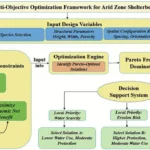Key Points
- University College London researchers found brain cells that track behavioral progress in sequences, helping to guide complex actions.
- Mice were able to generalize sequence structures, an indicator of intelligent behavior.
- Medial frontal cortex records showed cells mapping “goal progress” in tasks. Specific cells mapped progress toward subgoals and overall goals.
- The team is studying how these cells form connections and how these processes emerge in human brain development.
Neuroscientists at University College London (UCL) have identified specific brain cells that create multiple coordinate systems, helping us track “where we are” in a sequence of behaviors. This discovery, made through studies with mice, offers insights into how the brain structures sequences of actions, supporting behaviors such as planning and decision-making. These findings could improve our understanding of certain psychiatric conditions, like schizophrenia, where such processes may go awry.
Published in Nature, the research was conducted at UCL’s Sainsbury Wellcome Centre in collaboration with the University of Oxford. The team focused on how mice learned various sequences with a consistent underlying structure, allowing researchers to see how mice could generalize this structure to new tasks—a key marker of intelligent behavior. Dr. Mohamady El Gaby, the study’s first author and a neuroscientist in the Behrens lab, explained that this ability to generalize resembles human problem-solving, such as applying knowledge of one recipe to a new dish.
In the experiment, researchers presented the mice with four-goal locations arranged in a loop (A, B, C, and D). While each sequence differed in details, the overall structure remained the same. Notably, after some practice, the mice showed the ability to infer steps they had never experienced. For instance, when reaching location D in an unfamiliar setting, the mice “knew” to return directly to A, indicating an understanding of the sequence structure rather than just a memory of specific actions.
The team recorded activity in the medial frontal cortex linked to complex behaviors and decision-making to explore how the brain achieves this. Using silicon probes, they discovered that certain brain cells tracked the animal’s progress toward its goal. Some cells fired at specific percentages of task completion, while others were tuned to overall goal progress, regardless of location or duration. These cells effectively formed a “behavioral coordinate system,” allowing the animal to track its position within the sequence.
Dr. El Gaby compared this to cooking: some cells tracked subgoals like chopping vegetables, while others focused on the overall progress toward completing the meal. This structure enables the brain to flexibly generate action sequences, like a configurable music box that can “play” different behavioral patterns.
The researchers are now investigating how these coordinate systems form in the brain and how they are affected in conditions like schizophrenia. Early evidence suggests similar activity patterns exist in humans, prompting further study on how psychiatric conditions disrupt these processes.





